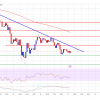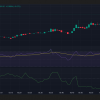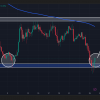
Table of Contents
Dex vs Cex 2023
The ever-changing landscape of cryptocurrency trading is in a state of constant flux, with the ongoing debate between centralized exchanges (CEXs) and decentralized exchanges (DEXs) taking center stage. As these two distinct models each bring their unique strengths and complexities to the table, let’s embark on a deeper exploration to discern which might align better with the preferences of diverse traders and the underlying rationale.
Exploring the Unseen Expenses:
CEX Gas Charges: When utilizing a CEX, you’re greeted with a trifecta of costs—initially, a gas fee for transferring funds from your wallet to the CEX, followed by a trading fee on the platform, and culminating in another gas fee for transferring your assets back to your wallet. Three separate financial considerations to keep in mind!
DEX Gas Fees: DEXs may appear more expensive due to gas fees, but in reality, you’re typically contending with a solitary transaction fee. Over time and with escalating transaction volumes, this seemingly minor difference can accumulate significantly.
Time and Convenience: The Importance of Efficiency
CEX Delays: The CEX route involves multiple steps, encompassing transfers, waiting periods, actual trading, and further waiting for withdrawals, rendering the entire process time-intensive.
DEX Efficiency: In contrast, DEX transactions are characterized by their directness. Frequently, you can execute a trade in a matter of seconds, without the need for protracted confirmation waits.
Prioritizing Safety and Security: Safeguarding Your Assets
CEX Vulnerabilities: Centralized platforms expose themselves to hacking risks at both the platform and individual account levels. The size of the centralized entity directly correlates with its attractiveness as a target for potential cyber threats.
DEX Security: When employing a hardware wallet in conjunction with DEXs, the security level enjoys a substantial boost. This setup provides a secure enclave for your cryptocurrencies, impervious to internet-based vulnerabilities.
Diversifying Assets and Ensuring Liquidity: Expanding Your Trading Horizons
CEX Offerings: While CEXs are renowned for their robust liquidity, they often come up short in terms of asset variety. This limitation is primarily influenced by the expenses and prerequisites involved in listing new tokens.
DEX Diversity: DEXs, on the other hand, frequently present a broader array of tokens, especially those that are newer or less mainstream. This is largely attributable to the absence of prohibitive listing fees.
User Experience and Interface: Navigating the Trade
CEX Platforms: Many traders find solace in the user-friendly and often sophisticated interfaces offered by well-established CEXs.
DEX Design: Although some DEXs may lack the polished aesthetics of their counterparts, they compensate by providing a straightforward and no-frills trading experience. For experienced traders, functionality often takes precedence over aesthetics.
Emerging Solutions: The Confluence of Both Realms
- DEX Aggregators like $RVF: These innovative platforms amalgamate the best of both worlds by interlinking multiple DEXs and even CEXs. Their aim is to furnish users with optimal rates, liquidity, and asset diversity while preserving the essence of decentralization.
Charting the Course Forward
For novices or individuals operating with limited capital, CEXs may still beckon with their user-friendly interfaces and lower initial transaction fees. However, as the crypto ecosystem continues to evolve, DEXs are steadily solidifying their status as the preferred choice for seasoned traders, predominantly due to heightened security measures, expanded asset options, and greater overall control.
In the end, the decision between DEX and CEX hinges on individual requirements, trading volumes, and risk appetites. As the world of cryptocurrency matures, we can anticipate the emergence of even more innovative solutions that bridge the divide between centralized and decentralized platforms.
FAQ
A cryptocurrency exchange is an online platform where you can buy, sell, or trade cryptocurrencies like Bitcoin, Ethereum, and others.
Safety varies by exchange. Look for platforms with strong security measures, like two-factor authentication and cold storage for funds.
Consider factors like security, fees, available coins, user interface, and customer support.
Centralized exchanges are managed by a company, while decentralized exchanges operate without a central authority.
Many exchanges require Know Your Customer (KYC) verification for security and regulatory compliance.
Trading fees vary but typically include maker fees (for adding liquidity) and taker fees (for removing liquidity).
Yes, most exchanges offer cryptocurrency-to-cryptocurrency trading pairs.
Withdrawal times depend on the exchange and the cryptocurrency. Some are instant, while others may take hours or even days.
A wallet address is like a bank account number for cryptocurrencies. It’s required to send your crypto to the right place.
Yes, depending on your country’s tax laws, trading cryptocurrencies may have tax consequences. Consult a tax professional for guidance.
Yes, many cryptocurrency exchanges operate 24/7, allowing you to trade at any time.
A market order buys or sells at the current market price, while a limit order sets a specific price at which you want to buy or sell.
Yes, each exchange sets its own minimum and maximum trading limits, which can vary widely.
It’s not recommended. For security, it’s better to use a cryptocurrency wallet, especially for significant holdings.
Exchanges typically have account recovery processes, including password reset options and support for forgotten usernames.
Some exchanges offer insurance, but coverage can be limited. It’s essential to check an exchange’s insurance policy.
Use strong passwords, enable two-factor authentication, and be cautious of phishing scams and suspicious emails.
Yes, but it’s recommended to learn the basics of trading and understand the risks involved before you start.
Stablecoins are cryptocurrencies pegged to the value of a fiat currency like the US dollar. They provide stability and are commonly used for trading and transferring funds on exchanges.
Yes, regulations vary by country. Many countries have implemented or are considering regulations to govern cryptocurrency exchanges for consumer protection and financial stability.
























